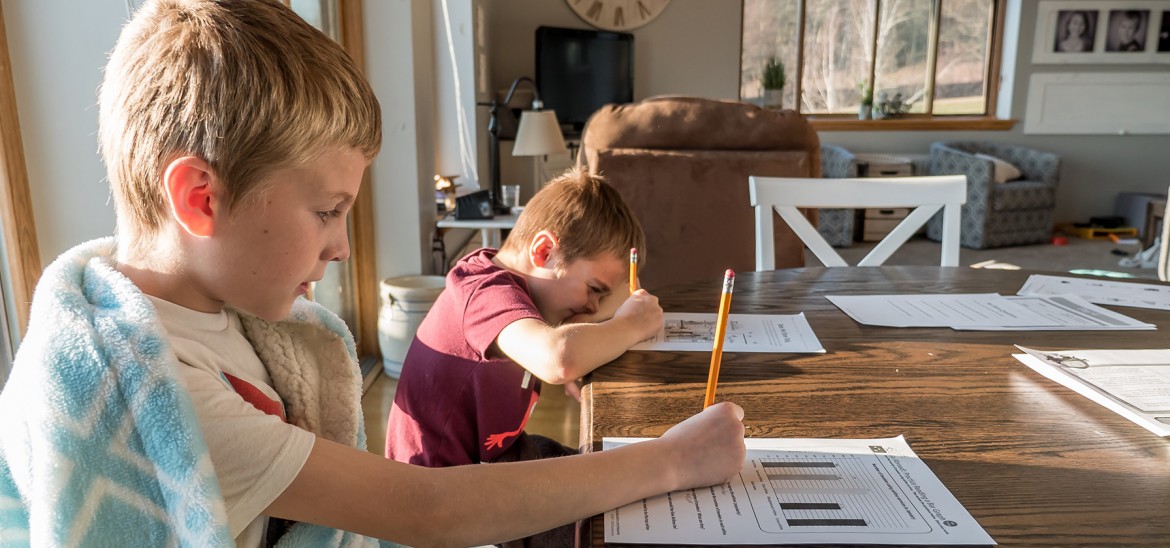Into Film Clubs
Find out everything you need to know about starting an Into Film Club.



As the coronavirus/COVID-19 situation continues, we realise teaching from home while working, getting dressed, making breakfast, and finding five minutes to yourself everyday, is a stressful juggling act. With this in mind, we reached out to some parents with prior experience of home educating their children who offered up some great tips to help you manage.
Georgina, from Northamptonshire: Start with some exercise, if possible, as it gets the oxygen flowing to the brain and gets rid of any wiggles. For older children, maybe discuss with them how they think the day should start: would doing their favourite subject first act as an incentive to get going, or would they prefer to do it at the end as a treat? If possible, include a timed video lesson with some friends first thing to get them going by a set time. Make sure it's timed though, so it doesn't go on too long and drift to general chat.
Alison, from Bolton: All children (just like adults) work best in different environments and some work better alone, so allowing them the freedom to find out what suits them is very important for their development. An interesting learning project that has worked for us is to find a book and the film adaption of the book, read the book and then compare it to the film. Additional tasks can be to research who was involved in bringing the film to the screen, who directed it, who adapted the book into the screenplay, the costumes and much more. Try not to have strict time limits on projects like this - allow them the space to explore in depth.
Jo, from Barnsley: We have a semi-structured day and we don't make the mistake of feeling that we have to learn continually from 9am till 3pm. Break the day up, because we have found little but often is better than constant learning for hours.
People have different ways of working, and what suits one person won't suit another. Children are no different.
Alison, from Bolton, on home educating young people
Georgina: Try and use a timetable. Children like structure and it makes sure the least favourite subjects don't get missed. Being at home has the advantage of allowing parents to tailor lessons to their own children's interests.
Alison: People have different ways of working, and what suits one person won't suit another. Children are no different. I have children who like structure and children who don't, so we tailor each child's learning to suit them.
Jo: Always make learning fun and involve them in what they want to learn by planning it together. Try to keep a realistic goal together that you would like to reach and try not to compare your child against others too much, as children all learn at different timescales. If they didn't get it today, then there is always tomorrow!
Alison: Communicate, relax, try and see the bigger picture, and don't stress when things don't go the way you hoped. Learn to work as a team and give each other space. Show, don't tell. This goes for everything from maths and literacy to humility and emotions. If you feel stressed, tell them. If you feel happy, tell them that too. If it's not working, don't push it. If a subject is considered 'boring', try going outside to do a bit of exercise, some art, or just to have a laugh. A happy brain works better!
Georgina: Variety is important, and make sure you set time aside for physical activity. They do a lot at school and all ages of children need it. It won't harm the parent either! Enjoy being with your children - the time will zip by and you'll wish you had more!
For more advice and inspiration on making the most of working from home, check out these tips from the other side, as 16-year-old Archie offers his own tips, having home educated himself, and from young filmmaker Cameron, who advises how young people can use their time at home to explore a future career in the film industry and even get started on a filmmaking project.
Viewing 4 of 4 related items.

Find out more about our streaming service, designed specifically for UK schools.